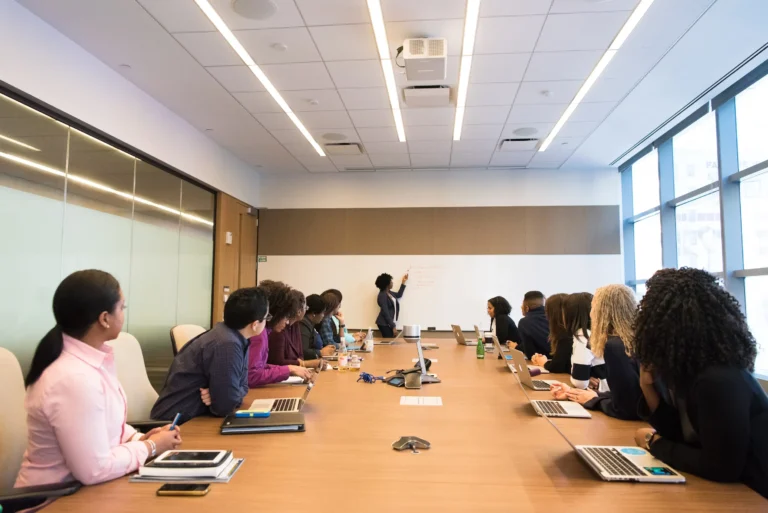From consoles and PCs to mobile phones, gaming has become a dominant force in modern culture, touching tens of millions around the world. Its influence is not confined to the entertainment industry; technology, communication, and now even education have all felt its effect at some stage in their development. People who play games often develop a broad range of skills, from strategic thinking to team collaboration and management skills. These skills don’t just serve them in the virtual world but also in the boardroom because they apply to the business world. This article looks at how skills acquired while gaming can help us make better strategic decisions, manage teams effectively, and develop leadership skills.
Strategic Planning and Decision Making
Like in the gaming world, effective strategic planning in business requires clear thinking and strong decision-making. In business, leaders need to use different types of information — from market trends and job performances to internal financial reports — to make properly thought-out judgments in line with their long-run objectives. This strategic thinking is about looking ahead at where the market will go and getting your company there ahead of time — similar to playing a game where each move is played out in advance, and you achieve ultimate success.
Take the game of blackjack. When a player chooses whether to hit or stand, they are not only considering the immediate value of their cards but also what the dealer’s visible card suggests about the deck’s remaining unseen cards. Similarly, in business, leaders must back up their strategic choices with hard data from the marketplace and analysis of competitors. Just as in blackjack, when players predict possible outcomes based on known and unknown factors, business leaders foresee market responses and plan their strategies accordingly. This analogy shows how strategic thinking in gaming can improve corporate decision-making.
Teamwork and Collaboration

When it comes to multiplayer gaming, teams aren’t simply helpful; they’re downright crucial if you want to succeed. Teams within games like Overwatch and League Of Legends need to work together, each player performing their own special roles which are vital for the team’s overall strategy and performance. Collaboration in business is similar; it’s a group of interdependent individuals working together on a project that might require some initial idea from one person, followed by a great deal of follow-up from elsewhere, with everyone coming together to share their expertise.
A business team’s makeup parallels that of a gaming one: a healer, tank, and DPS are all essential to the team’s survival and victory. The roles in business range from strategic thinker to execution specialist. Knowing and valuing these various roles and the individual talents each person brings ensures that complex projects are completed and encourages an innovative and forward-thinking workplace culture.
Risk Management and Adaptability
For gamers, risk assessment and adaptation are all done as a matter of course. Their strategies change in real time whenever new challenges arise. Strategy games are the perfect example of this — changing tactics based on an opponent’s unexpected move or survival games where materials are scarce. In the business world, where agile management is everything and change happens at the speed of light, being able to turn on a dime is important.
Companies today must deal successfully with uncertain markets, technology disruptions, and constantly changing consumer behavior. Just as a player reacts quickly when their game environment suddenly changes, prompt responses from companies can maintain competitiveness and counteract external pressures to create a more resilient business. Companies can embrace these strategies — using what they’ve learned from playing games — to adjust plans or completely shift their business practices.
Resilience and Learning from Failure
Gaming teaches players to look at their failures not as setbacks but as learning opportunities. In games, each defeat is an opportunity to re-strategize, better understand your weaknesses, and prepare to face the next challenge. This type of resilience is invaluable in the business world, where the stakes for entrepreneurs are high, and roadblocks happen frequently. Adopting a gamer’s mindset means treating failures as necessary steps towards success. At the same time, it helps businesses develop a culture in which innovative ideas are tested and built upon, where setbacks are not seen as defeats but rather integral parts of the learning process.

